Search Results
Showing results 1 to 20 of 90

Lava Layering: Making and Mapping a Volcano
Source Institutions
In this activity, learners discover how geologists use stratigraphy, the study of layered rock, to understand the sequence of geological events.
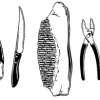
Fossilized Dinosaur Teeth Adaptations
Source Institutions
In this activity, learners use models of fossilized dinosaur teeth to understand how dinosaur teeth were used.
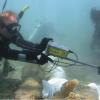
Excavating and Mapping Under Water
Source Institutions
In this archaeology activity, learners consider ways in which excavating an underwater site is different from excavating a terrestrial site.
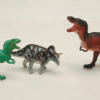
Join the Dinosaur Age
Source Institutions
In this activity, learners rotate through several learning and play stations to explore dinosaurs and paleontologists.
Mercury in the Environment
Source Institutions
In this environmental science lesson, learners will examine the dangers of mercury and how humans contribute to growing mercury emissions on Earth.
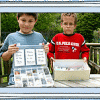
Start a Rock Collection
Source Institutions
Learners follow a three-step process to start their own rock collection.

Glaciers
Source Institutions
In this online activity, learners adjust mountain snowfall and temperature to see how glaciers grow and shrink. They will use scientific tools to measure thickness, velocity and glacial budget.
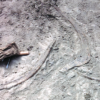
Kelsey: Clues of the Dig Site Map
Source Institutions
In this activity, learners explore dinosaur fossils and a dig site. Learners work in groups to analyze a dig site map and match bones to a skeletal drawing of Kelsey (a Triceratops).

Radioactive Decay of Candium
Source Institutions
In this simulation, learners use M&M™ candy to explore radioactive isotope decay.

Do Your Own Dig
Source Institutions
In this outdoor archaeology activity, learners use mathematical skills and scientific inquiry to generate and process information from their own excavation site.
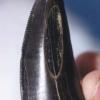
Fossils: Observing, Making and Learning
Source Institutions
In this activity, learners explore how casts of fossilized bones are created and used to learn about dinosaurs. Learners make observations, draw diagrams and share their findings.

Arctic Sea Ice
Source Institutions
In this activity, learners explore how the area of Arctic sea ice has changed over recent years. First, learners graph the area of Arctic sea ice over time from 1979 to 2007.
Coastal Erosion: Where's the Beach?
Source Institutions
Learners use beach profile data from a local beach or online data from Ocean City, Maryland to investigate coastal erosion and sediment transport.

Clean Water: Is It Drinkable?
Source Institutions
In this activity, learners simulate nature's water filtration system by devising a system that will filter out both visible and invisible pollutants from water.
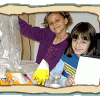
If Trash Could Talk
Source Institutions
Ancient trash tells archaeologists a lot about the past. In this activity, learners take a close look inside their trash can and think about the clues it offers about their lives.
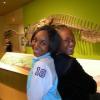
Bone Identification
Source Institutions
This activity (page 3 of the PDF under SciGirls Activity: Dinosaurs) is a full inquiry investigation into fossil hunting and identification.
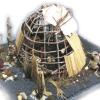
If You Lived in a Forest
Source Institutions
This activity encourages learners to focus on the natural environment of the Eastern Woodlands before the arrival of European settlers.
The Earth's Timeline
Source Institutions
In this group activity, learners will mark important developments of life on Earth on a timeline (each foot in length representing 200 million years).
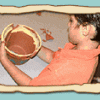
Piecing It All Together
Source Institutions
Learners create their own piece of history by decorating, shattering, and piecing together a flowerpot "artifact".

Relative Speed of Dinosaurs
Source Institutions
In this activity, learners interpret three trackways and use measurements and a formula to infer the relative speed of dinosaurs.
